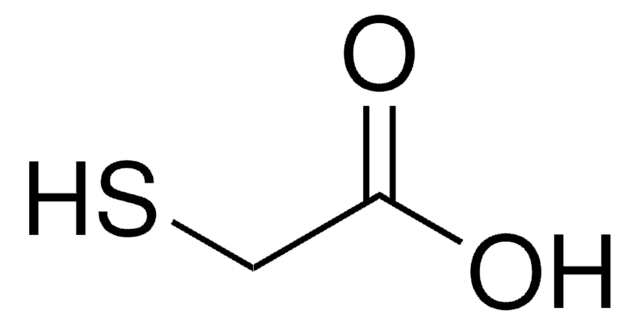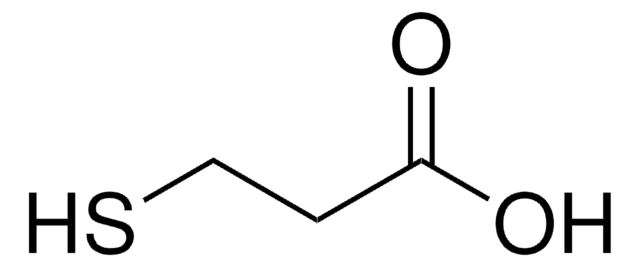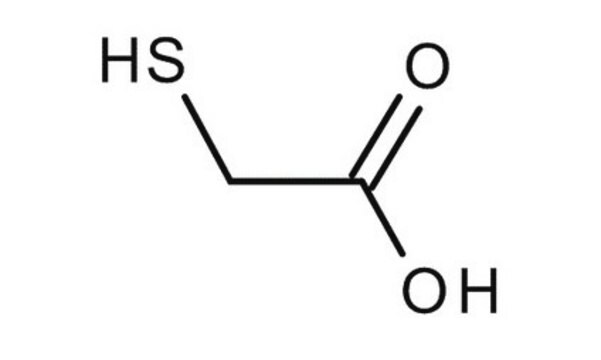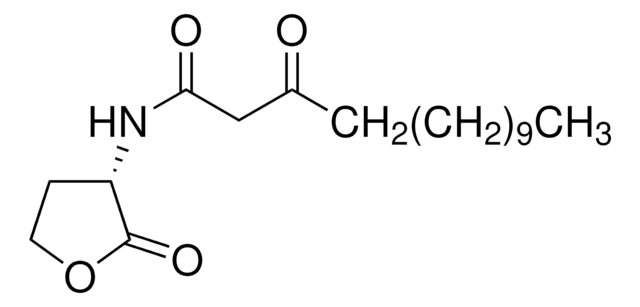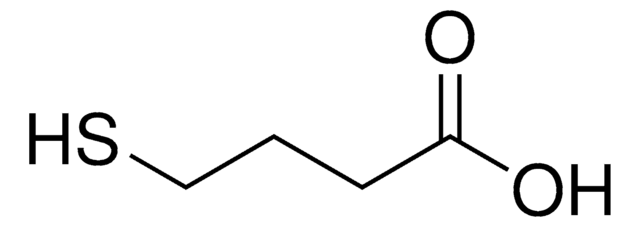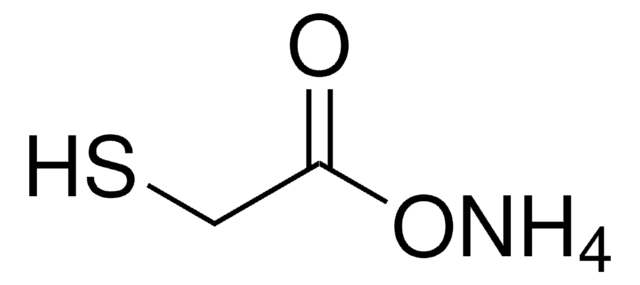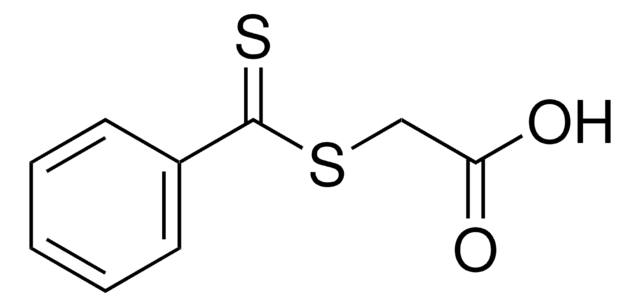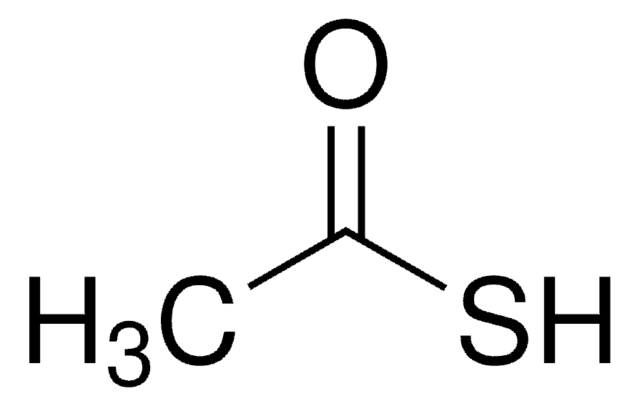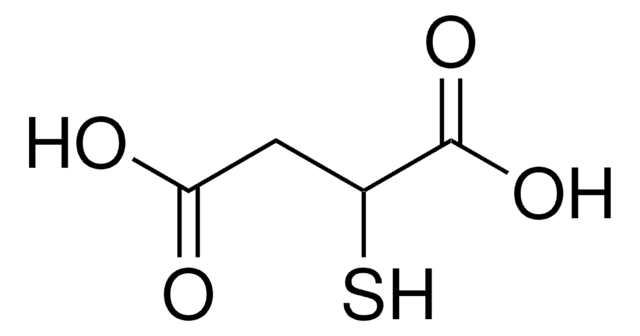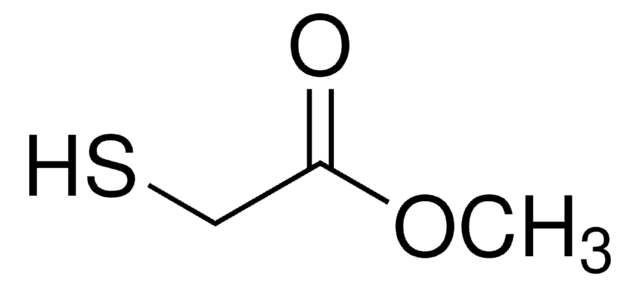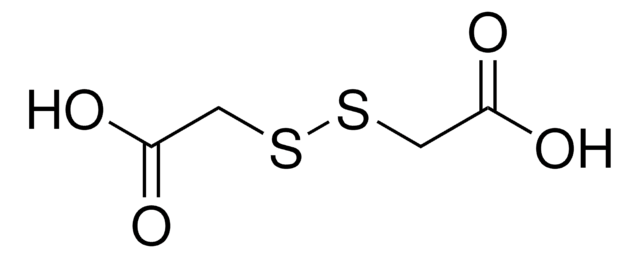T3758
Thioglycolic acid
98%
Synonym(s):
Mercaptoacetic acid
About This Item
Recommended Products
vapor density
3.2 (vs air)
Quality Level
vapor pressure
0.4 mmHg ( 25 °C)
Assay
98%
form
liquid
autoignition temp.
662 °F
color
clear colorless
refractive index
n20/D 1.505 (lit.)
bp
96 °C/5 mmHg (lit.)
mp
−16 °C (lit.)
density
1.326 g/mL at 20 °C (lit.)
shipped in
wet ice
storage temp.
2-8°C
SMILES string
OC(=O)CS
InChI
1S/C2H4O2S/c3-2(4)1-5/h5H,1H2,(H,3,4)
InChI key
CWERGRDVMFNCDR-UHFFFAOYSA-N
Looking for similar products? Visit Product Comparison Guide
General description
Application
Caution
related product
Signal Word
Danger
Hazard Statements
Precautionary Statements
Hazard Classifications
Acute Tox. 3 Dermal - Acute Tox. 3 Inhalation - Acute Tox. 3 Oral - Aquatic Chronic 3 - Eye Dam. 1 - Skin Corr. 1B - Skin Sens. 1B
Storage Class Code
6.1C - Combustible acute toxic Cat.3 / toxic compounds or compounds which causing chronic effects
WGK
WGK 3
Flash Point(F)
266.0 °F - closed cup
Flash Point(C)
130 °C - closed cup
Personal Protective Equipment
Choose from one of the most recent versions:
Already Own This Product?
Find documentation for the products that you have recently purchased in the Document Library.
Customers Also Viewed
Our team of scientists has experience in all areas of research including Life Science, Material Science, Chemical Synthesis, Chromatography, Analytical and many others.
Contact Technical Service